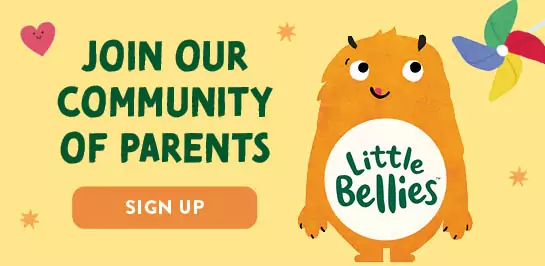Meditation on Motherhood: Mom Guilt and Learning Self-Care.
Reading time:
Reading time:

By Molly Nourmand, LMFT. Founder + Clinical Director of Life After Birth®
Last year, the surgeon general called out something that we, mothers, feel in our bones: parental stress is a significant public health issue. For those of us who parented the pandemic, we’ve since been stacking burnout on top of burnout on top of burnout, along with some unmetabolized grief. Simultaneously, we’re straddling how much time we (and our children) spend on screens vs IRL amid a polarizing political climate. Okay, enough of the doom and gloom – you already know and live this. In the following article, I will unpack why you may feel so much perfectionism and parental guilt and share some mindful antidotes.
The Perfect Parent
The seminal book The Anxious Generation (2024) highlights the harmful effects of social media on our youth; however, the constant highlight reels that we, adults, are fed on Instagram negatively impact us, too. As mothers, the algorithm gives us back what we seek (parenting advice, hacks, inspiration, etc.), plus we absorb myriad messages of what a mother should be, look like, and do. Intellectually, we know that influencers have a team curating their image and content, and yet the musts and shoulds seep into our unconscious, pressing on those pain points of not-enough-ness.
As mothers, we can get down on ourselves and be concerned that we’re not bonding with our baby and/or meeting all our children’s needs (especially when we’re exhausted, depressed, depleted, not feeling it, etc.). Enter the “Good Enough Mother” concept coined by Pediatrician and Psychoanalyst, Dr. Donald Winnicott, in 1953. This is from an article about him on attachment:
“It is helpful to remember that while we want parents to consistently read and respond to their infant’s cues, to do that all the time would be a challenge at best. There are times when parents are tired, preoccupied, or otherwise not completely available, and the exchanges between a child and primary caregiver are not in sync (that is, cues are misread, for example). [Psychologist] Dr. Ed Tronick notes that typically, a parent and their infant are in sync only around 20 to 30% of the time. This seems consistent with what Winnicott coined ‘the good enough mother [parent]’ many years ago, and speaks to the fact that parents can’t be expected to be perfect, and that good enough parenting can still lead to secure attachments.” In fact, Winnicott observed thousands of babies and their mothers, and he came to realize that babies and children benefit when their mothers fail them in manageable ways.
It seems counterintuitive, I know, but the truth is, when you have children, you do not have the luxury of perfection anymore. Frankly, you don’t have the time or the energy for it. And I’m not saying that women’s commitment to their work degrades when they become mothers. Contrarily, they actually become more efficient, decisive, empathic, and know how to prioritize what’s important. If you do try to attain perfection, the superwoman archetype, you will crash at some point. It’s simply not sustainable. You will get the Type A beaten out of you, and then you’ll become a recovering perfectionist, like me.
Mom Guilt
Mothers are held to an impossible standard by society. You may have heard the paradox: Women are expected to work as if they don’t have children, and raise children as if they don’t (do paid) work. Hence, mom guilt. It’s an epidemic. And it’s almost a badge of honor: If you don’t feel guilty, then you must be a bad mom, right? Not quite.
Here’s a game-changing reframe on guilt. I use this all the time professionally and personally. When you are making a decision, you need to check in with yourself and ask, “Can I tolerate more guilt or more resentment in this situation?” As a mother, I guess that you’re pretty skilled at tolerating resentment. Chances are, when you choose to take care of yourself, you will likely feel some guilt. So, your work is learning to tolerate guilt.
Mindful Parenting
Speaking of sitting with emotions, before my daughter took residence in my body, I had a steady meditation practice at dawn. I love nothing more than to savor the crisp air and quiet time of day before the sun and world are up. This ritual had been cultivated through practicing and teaching yoga and meditation for over a decade and attending retreats. After my daughter was born in 2016, I could barely fit in a shower, much less sit and meditate. I found myself disconnected from my intuition, my body, and daily rituals that helped keep me connected and grounded.
Then I came across the book Buddhism for Mothers: A Calm Approach to Caring for Yourself and Your Children (2010). In short, it reframes motherhood as a spiritual practice. This slight shift in perspective gave me hope that it is not necessary to limit my concept of meditation to solely being seated in a quiet, tidy place. I realize that children are ego annihilators, and the more we resist and try to find some semblance of order or control, the more we suffer. There is a certain type of surrender required as mothers, one that allows us to be flexible and embrace the mess, the chaos, the noise, the uncertainty, and the disappointments as fodder for growth. Then mothering itself becomes a meditation. In other words, practicing staying present and unruffled while you are feeding your children, doing dishes, folding laundry, or holding space for big feelings.
The more my daughter has grown, the more I’ve invested time and energy into studying Conscious Parenting. It has underscored that when I am triggered, it is my unprocessed unconscious material or past traumas – it’s not about her. I have also learned that for our relationship with children (or any relationship for that matter) to be authentic and sustainable, self-care and personal boundaries are a must.
Here are some neuroscience-based strategies to help parents regulate their nervous systems and manage stress:
Conclusion
Remember, if you’re feeling some guilt, then you’re probably taking care of yourself. Our fixation with being perfect is more about us than our kiddos. Our children don’t need perfection, they prefer a present, relaxed, playful parent. So, find some creative ways to inject mindfulness into your day, and trust that your child will get a better parent if you prioritize taking care of yourself.

Let’s Make It Official
Get the latest news on parenting tips, food play hacks, promotions and giveaways!
Subscribe Now